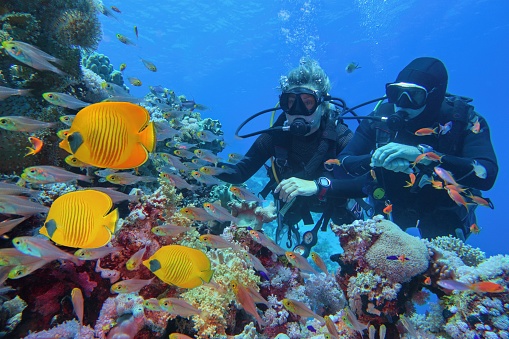Scuba Diving Safety Tips

Scuba diving is a popular sport that attracts people of all ages and interests. It is a great way to see the world underwater, explore spectacular reefs or even dive into sunken wrecks. It is also a wonderful way to unwind and de-stress. However, before you go diving there are some basic scuba safety tips that you should follow.
The most important rule is that you must not exceed your limit for the amount of air you can hold in your tank. If you do, it can cause oxygen poisoning and other problems. To avoid this, always make sure that you have a reserve of air in your tank, so that you can come up to the surface and top up your air supply as necessary.
Another important scuba diving NJ safety tip is that you should not dive with anyone who isn't properly trained. In many cases, novice divers don't know how to dive properly and this can lead to serious problems.
This is a very important rule to follow because it can save your life. If you ever feel like you're about to drown, don't panic - instead signal your dive buddy and have them help you ascent safely.
Keeping your hands to yourself is also an important scuba diving NJ safety tip, as coral and other marine plants can be dangerous or sharp. Besides, you should never touch anything (other than the rocks) on the reef. This is because most marine creatures are poisonous and they will bite you if they think you're trying to harm them.
Don't over-extend yourself by swimming fast across the reef - it can cause you to lose your balance and you'll be less able to see the things that are around you. Try to slow down and swim slowly, and if you get tired or out of breath, signal your dive buddy and find a coral-free rock on which to hang.
One of the most common causes of diver fatalities is panic. Learn to recognize signs of panic and practice meditation and breathing techniques to calm yourself down and keep yourself in control.
It is best to stay with your dive buddy and guide throughout the whole dive. This is because it is easier to keep your orientation underwater when you're with someone else.
Check your pressure gauges regularly to ensure that you don't over-expand your lungs and end up with decompression sickness. This is because too much nitrogen gets into your body, which can lead to bubbles in the blood or tissue.
You should always make a safety stop between 3 and 6 meters, this is a good way to reduce decompression sickness risk as it gives your body time to remove the excess nitrogen from your lungs.
Using a rope to equalise is also another important scuba safety tip. This is because it can save your life if you ever need to come up to the surface and get help.
Aside from these scuba safety tips, it is a very good idea to consult your doctor before you scuba dive. This can be especially helpful if you have any medical conditions or if you're pregnant. Learn more about scuba at https://en.wikipedia.org/wiki/Scuba_diving.
